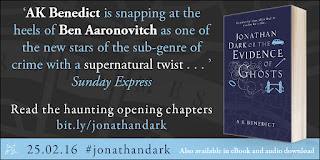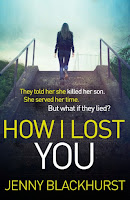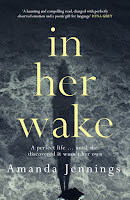by Daniel Pembrey
On Saturday, March 19th I have the pleasure of interviewing
John Harvey at
Nottingham’s Bromley House Library, which celebrates its 200th anniversary in 2016.
 |
| Photo: Molly Ernestine Boiling |
Holder of a Crime Writers’ Association Diamond Dagger Award, author of the Nottingham-based Charlie Resnick detective books … John Harvey requires little introduction.
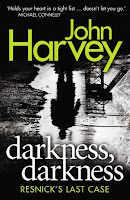
John is adapting his last Resnick book
Darkness Darkness to the stage at Nottingham Playhouse.
Alongside Ian Rankin’s Rebus character and Michael Connelly’s Harry Bosch, Resnick has had the biggest influence of any on my own police detective character Henk van der Pol (from my Amsterdam crime series
The Harbour Master, to be published by No Exit Press later this year).
But there is another reason why
Darkness Darkness means so much to me, as a Nottinghamshire native, and it has to do with its brilliant parallel narrative structure. For the backstory involves the 1984 miners’ strike.
 |
| D.H. Lawrence, a coalminer’s son |
It turns out that my great grandfather was a coalminer in North Notts, which helps explain why another local writer – D.H. Lawrence – has always spoken to me.
Reading
Sons and Lovers at school was like a window into some strange yet familiar world: the dialect, the heat of the exchanges between Mrs. Morel and her coalmining husband … this semi-autobiographical book, Lawrence’s first great novel, has had a peculiar hold on me. Specifically, it alerted me to how Lawrence venerated his mother and vilified his father. Just as my grandfather did with his parents, I later learned.
 |
| With my old English teacher, Mr. Ruff |
Like D.H. Lawrence, I went to Nottingham High School. His time there was largely erased from the school records after the furore surrounding
Lady Chatterley's Lover.
As an adult, Lawrence ventured far and wide. I did the same, and became so fascinated with his travels throughout the Americas that I quit my job with Amazon in Seattle to take up an artist’s residency in Taos, New Mexico, where Lawrence lived in the 1920s. (I would later re-join Amazon).
Joseph Campbell, the mythologist credited with helping inspire the original Star Wars films, recommended that when a writer really speaks to us, we should read everything that the writer has written and also the writers they influenced/who influenced them … So for a year I just read, and retraced Lawrence’s footsteps.
 |
| In the southern Mexican city of Oaxaca |
What was D.H. Lawrence doing in old and New Mexico? Looking for his father, among other things. This was the pattern I picked up on as I retraced his travels and read his contemporaneous writing. You can see it in the wish fulfilment aspects of his male protagonists, for example Don Ramón, the native, charismatic lead in the author’s deeply flawed yet fascinating novel
The Plumed Serpent. Lawrence never fully got over the earlier break with his dad and what his dad had stood for. Yet reconciliation of a kind did eventually come, not only in late essays such as Nottingham and the Mining Countryside but also in his last novel, where the gamekeeper finds harmony in nature with Lady Chatterley.
My own journey culminated at The National Coal Mining Museum For England – site of the former Caphouse Colliery, which closed in 1985. This is the only place in England where a member of the public can descend into a deep-shaft coalmine now. For me the experience involved an intertwining of present and past, bringing matters full circle ... much like in
John Harvey’s Darkness Darkness, where, using the narrative strand set in the eighties, Harvey returns Resnick to the era in which he started out, in Lonely Hearts – the first of this great detective series and incidentally one of the 100 Greatest Crime Novels of the Century according to
The Times.
Details about the John Harvey event at Nottingham Bromley Library can be found
here.

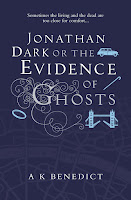 Her first novel, The Beauty of Murder, was shortlisted for the eDunnit award and is in development for an 8-part TV series. Her second, Jonathan Dark or The Evidence of Ghosts, was published by Orion last week. Described as ‘one of the new stars of the sub-genre of crime with a supernatural twist’ by the ‘Sunday Express’, Alexandra is currently writing the sequel to The Beauty of Murder.
Her first novel, The Beauty of Murder, was shortlisted for the eDunnit award and is in development for an 8-part TV series. Her second, Jonathan Dark or The Evidence of Ghosts, was published by Orion last week. Described as ‘one of the new stars of the sub-genre of crime with a supernatural twist’ by the ‘Sunday Express’, Alexandra is currently writing the sequel to The Beauty of Murder.
